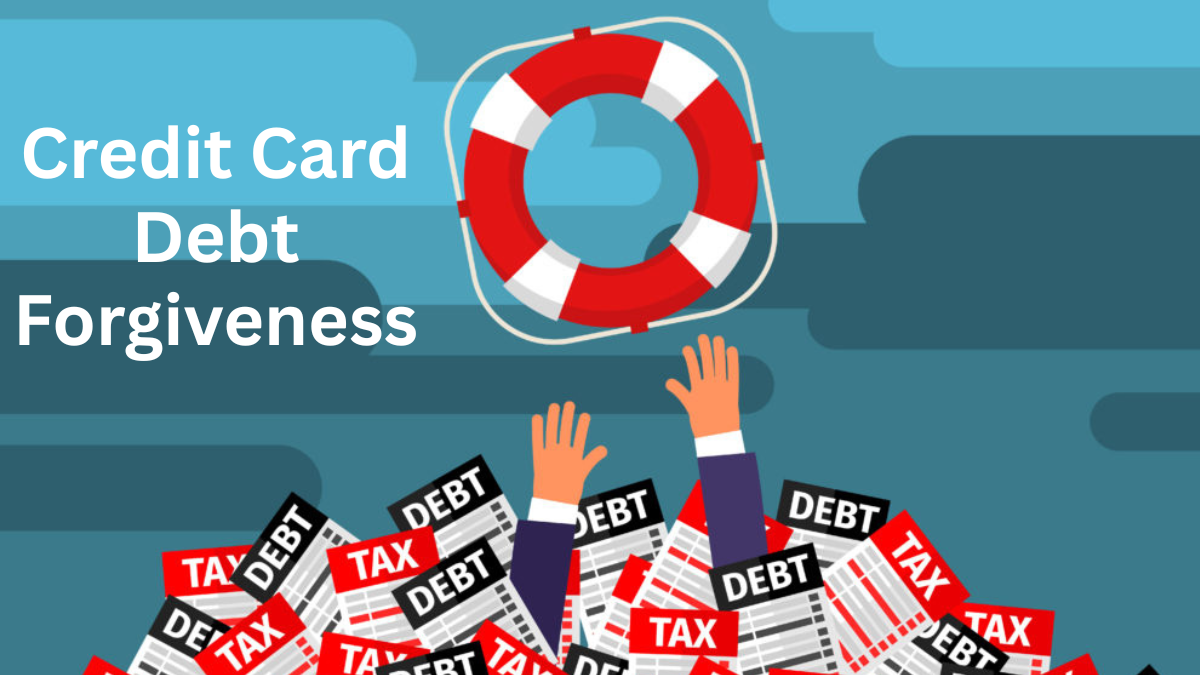Your cart is currently empty!

Credit Card Debt Forgiveness Plan: Finding a Way Out
In essence, a credit card debt forgiveness plan is a deal whereby you and your creditor agree to pay off your debt for less than what you owe. Although this card isn’t a way to pay off debt, it can be a good option if you’re behind on payments. This is how it typically operates. The credit card company could be willing to settle your account if you have ceased making payments or are several months past due. A lump sum that is less than the entire amount is offered by you or a representative acting on your behalf. The remaining debt is “forgiven” and you are released from responsibility if they accept the offer. For instance, suppose you owing $8,000 in debt. The remaining amount is wiped out, but you might be able to make do with $3,000 or $4,000. Isn’t that fantastic? However, bear in mind that the forgiven amount may constitute taxable income and that this lump sum must be paid in full. Therefore, even if a forgiveness plan can be quite helpful, it’s crucial to fully comprehend all the information before implementing it. Although it’s not the best course for everyone, it can provide a new beginning under the correct conditions.
Table of Contents
Credit Card Debt Forgiveness Programs: Getting Help From the Pros
You’re not alone if you find the prospect of negotiating with your creditor daunting. Programs for the forgiveness of credit card debt are available to assist you in the process. These initiatives, which aim to lower your debt, are frequently managed by private debt settlement firms or charitable organizations. Nonprofit credit counseling organizations typically offer a debt management plan (DMP). Under a DMP, you pay the agency once a month, and they take care of your creditor payments. These plans can help you pay off your debt more quickly and easily by lowering your interest rates and removing late penalties, even if they usually don’t forgive debt completely.Conversely, debt settlement firms try to work out a reduced overall amount for you. In order to improve your chances of settling for less, these companies may suggest that you cease making payments for a few months. This could potentially harm your credit. Just use caution—not all businesses are reliable, and some charge exorbitant prices. Spend some time considering your options if you choose this path. Seek out companies with honest ratings, transparent pricing, and a strong reputation. While the wrong program can worsen the situation, the right one can make a huge impact.
Credit Card Debt Forgiveness Program: Is It the Right Fit for You?
Are you attempting to determine whether a credit card debt forgiveness program is a wise decision? Start by examining your financial status honestly and thoroughly. A forgiveness program could provide the respite you require if you’re overburdened, behind on payments, and finding it difficult to make ends meet. A few indicators that you might be a good fit are as follows:
- You’ve failed to make several credit card payments.
- You’re paying off old debt with fresh credit.
- You continue to accrue balances even after you make payments.
Don’t worry if these sound familiar; that’s precisely what these apps are meant to assist with. They can lessen the load and assist you in creating a strategy for the future, but they won’t be able to pay off your debt right away. Just keep in mind that, particularly if your account is settled, your credit score may suffer temporarily. Eliminating excessive debt, however, will eventually enhance your credit score and financial status.
In Conclusion: Take Action Toward a Debt-Free Future
Credit card debt is difficult to manage, but it won’t go away if you ignore it. The first and most crucial step is to take action, regardless of whether you want to participate in a forgiveness program or attempt to negotiate a settlement on your own. Real solutions are available, and they are assisting people in regaining financial control on a daily basis. Ask questions, discuss your choices, and speak with a trusted person, such as a nonprofit credit counselor or a financial advisor. Your future does not have to be defined by your debt. Forgiveness is one of the options available to you.
Frequently Asked Questions about credit card debt forgiveness
Is credit card debt forgiveness real?
Absolutely, it is—but there’s a catch. While it’s possible to have part of your debt reduced or forgiven, it usually depends on your financial situation and whether your lender is open to negotiating
Who can actually get credit card debt forgiven?
If you’re facing tough times—think job loss, major illness, or just falling behind—it’s worth reaching out. Lenders tend to work with people who genuinely can’t afford to pay the full amount.
So, what exactly is credit card debt forgiveness?
It’s when your credit card company agrees to settle your balance for less than what you owe. Just keep in mind that the forgiven part could be taxed, so it’s not a total free pass.
How long does credit card debt stick around?
Unpaid debt doesn’t vanish quickly. In fact, it can stay on your credit report for up to seven years—even if the lender writes it off.
Leave a Reply